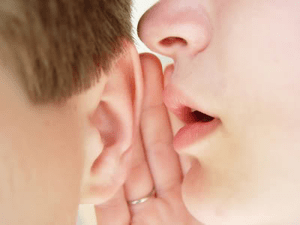In his stand up, comedian Louie C.K. spoke to the phenomenon of incessant self recording by video or selfies of every event in life to post on social media. He joked that Facebook is wrought with parents posting 7 second video clips of their children’s school play — Louie draws up the image of parents in the audience all with ipads and phones, blocking their view of their children. He says, “why are you taping this….you’re never going to watch it…you’re just doing it to put it on facebook ‘here you watch it’…and guess what, no one is watching it…”
There  are numerous references to this phenomenon of posting your life. Fast Company presented a story about Zuckerberg’s plan for Facebook and addressed that current high school kids are not using Facebook nearly as much as current college aged students. And despite popular belief, it is not the ‘uncool’ factor due to parents being on FB. The article referenced a study conducted in Queens NY interviewing high school kids about why they are not using FB. One kid stated “INRL – it’s not real life!” It seems the pendulum has swung from young adults posting everything about their lives in the past 5 years, to teenagers now recognizing that, well, social media is not real. Although social media has been accused of cultivating voyeurism and exhibitionism, it is possible that we are moving away from exhibitionism.
are numerous references to this phenomenon of posting your life. Fast Company presented a story about Zuckerberg’s plan for Facebook and addressed that current high school kids are not using Facebook nearly as much as current college aged students. And despite popular belief, it is not the ‘uncool’ factor due to parents being on FB. The article referenced a study conducted in Queens NY interviewing high school kids about why they are not using FB. One kid stated “INRL – it’s not real life!” It seems the pendulum has swung from young adults posting everything about their lives in the past 5 years, to teenagers now recognizing that, well, social media is not real. Although social media has been accused of cultivating voyeurism and exhibitionism, it is possible that we are moving away from exhibitionism.
Social media may be trading in its trench coat for a one way mirror. A different type of social media usage has been gaining popularity and visibility among smartphone users. Anonymous posting of secrets on websites such as PostSecret, has been present for nearly a decade. More recently, smartphone apps, like Whisper, are also allowing for this form of freedom – anonymous digital expression. Whisper is also unique in that it allows users to browse the musings of others without ever identifying the user – an experience that is both voyeuristic and therapeutic (Carr, 2014). The anonymity enables individuals struggling with life events to feel a sense of community, which can be especially helpful for those individuals lacking in resources or motivation to find appropriate forms of support. People can now express their concerns without shame and feel connected with other human beings.
The benefits can be summed up as such: people can seek support when needed, reduce feelings of loneliness and isolation without having to step outside of their home, it’s free, perhaps less guilt or shame experienced because of the anonymity. Now what are the costs?
Having the support at our fingertips can also condition individuals to rely on digital anonymous support. This can result in decreased ability to tolerate difficult emotions and decreased ability to be intimate with others live in-person. Additionally, if users share morbid and/or what could be traumatizing or triggering content, there is no safeguard for viewers. Content can lead viewers to feel discomfort and can also potentially cause a contagion effect. However, Whisper asserts they they screen out harmful content as a preventative measure.
Facebook alone reaches over 1 billion people worldwide, and counting. Social media is not dying anytime soon and more creative ways for its usage are being developed. There will always be costs and benefits to our digital lives – viewing posts can be uplifting, elicit a needed smile, warm your heart and even relieve stress. It can also reduce human ability to do things like wait, and talk to people around you, ask for support from people who love you, reduce ability to connect intimately. It is important to consider that not everything is made for everyone. Some people can use FB well, while others are addicted. Some people can go days without their phones, others panic. It doesn’t hurt to reflect on how digital usage is affecting you — and maybe even unplug for a few days as a test.
Leave a comment